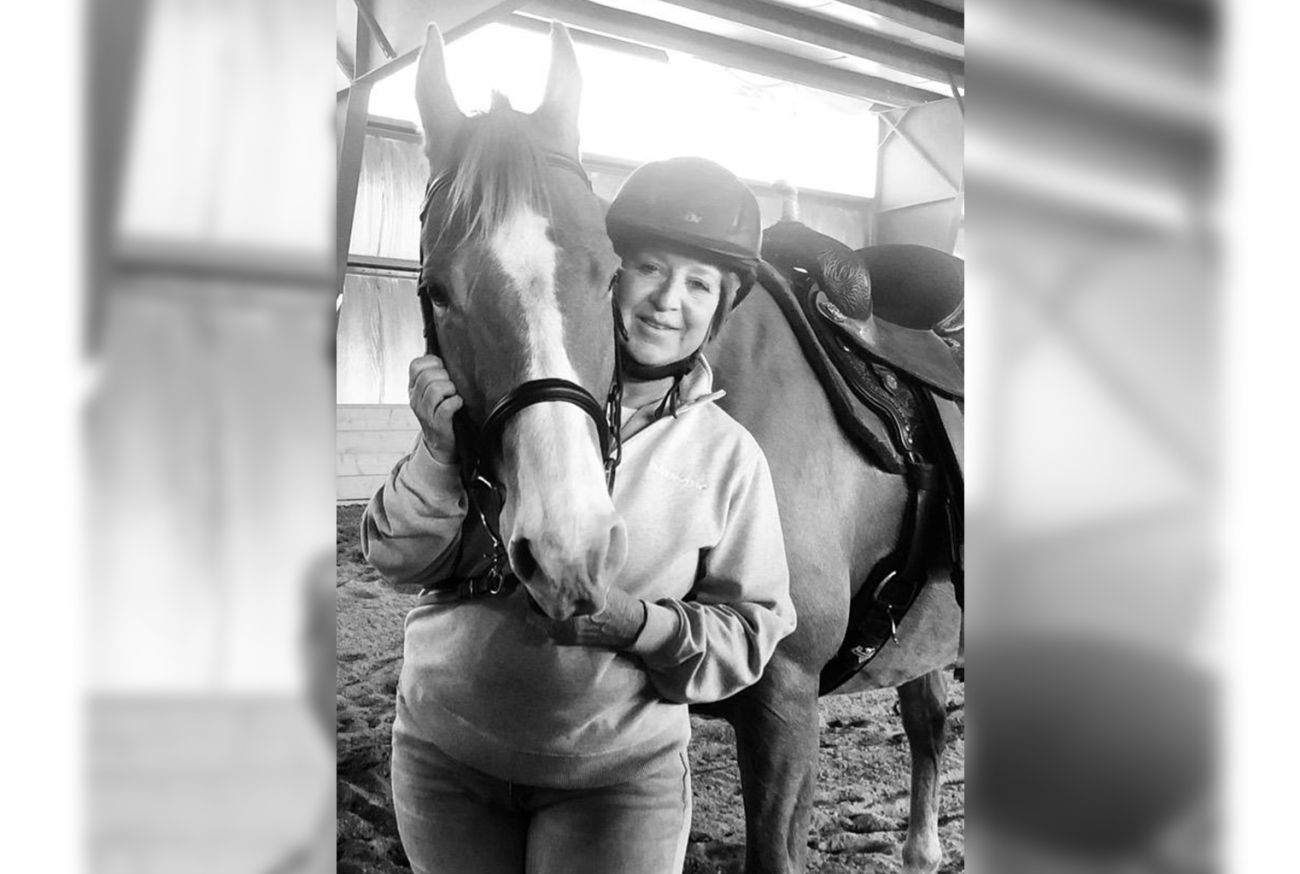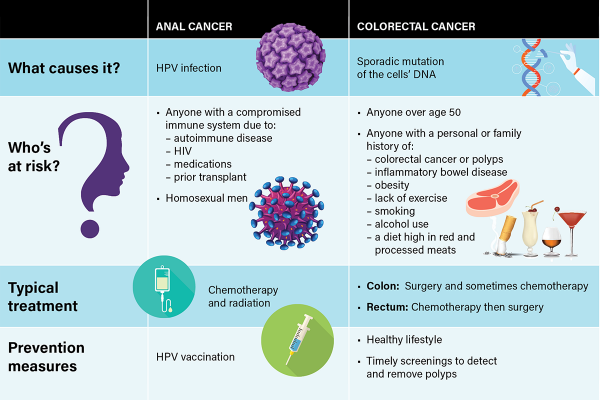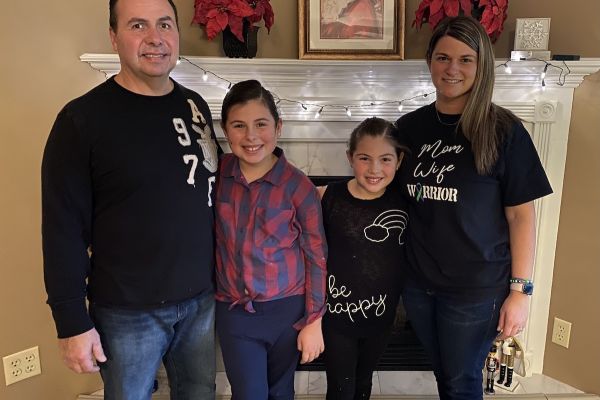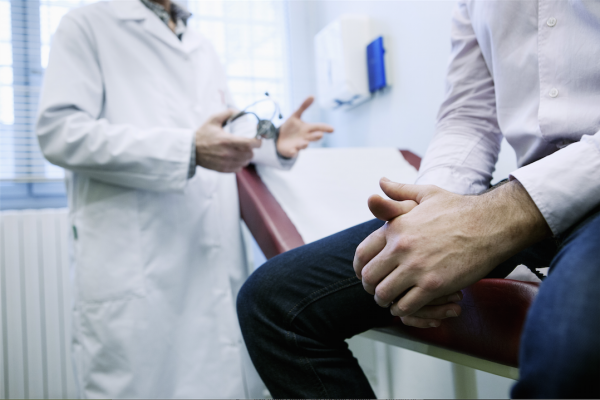If you are considering joining a clinical trial, Paula, age 60, has some advice: “Choose your doctor and healthcare facility wisely, learn as much as you can about the trial drugs, ask questions, consider all of your options, have faith and, most importantly, make sure you trust and believe in your doctor!”
In 2017, Paula went to her doctor with what seemed like a simple case of inflamed hemorrhoids. A few days later, she learned that her symptoms were not caused by hemorrhoids, but rather by a small tumor. “I was diagnosed with stage 2B anal cancer and underwent chemoradiation (combining chemotherapy and radiation therapy simultaneously) at the oncology center of my local hospital,” Paula recalls. “I had no side effects from the treatment and I never missed a day of work. At the end of three months of treatment, my CT scan was clear.”
Relapse prompts a new approach
Eight months later, however, Paula’s scans showed a small tumor on her lung. “Tests confirmed that the tumor was comprised of the same type of cells from my first diagnosis, meaning that the cancer had metastasized to my lung. Since I now had recurrent metastatic anal cancer, my oncologist suggested that I enroll in a clinical trial conducted at a comprehensive cancer center with a robust research team, and she recommended I go to Roswell Park Comprehensive Cancer Center. Before going to Buffalo, though, I made an appointment at another well-respected cancer center that is about the same distance from my home in New York’s Southern Tier. I consulted with that center once and didn’t get a good feeling. It felt very impersonal to me. I then decided to follow my oncologist’s first recommendation and, honestly, as soon as I walked through the doors at Roswell Park, I immediately felt like I would be in good hands.”
In November 2018, Paula met with Patrick Boland, MD, formerly of Roswell Park, and later, Sarbajit Mukherjee, MD, MS, both medical oncologists specializing in treating and researching gastrointestinal cancer. “Both of these doctors have a very calm, reassuring and compassionate demeanor. I learned that, based on my blood test results and my relapsed cancer, I would be an excellent candidate for a promising phase 2 multisite clinical trial that studied how well a combination of immunotherapy drugs worked in treating patients with anal canal cancer that had not responded to previous treatment and had spread to other places in the body.”
Paula then took her own advice. “I asked a lot of questions, all of which were patiently and thoroughly answered. As part of the informed consent process, I learned and understood the purpose of the trial and that there may be some side effects or risks unknown to the doctors. But I also knew that as a participant, my health would be monitored very closely as part of the study, that I could exit the trial at any time, and that I would have a full support team including social workers, dietitians, financial counselors and my research coordinator to answer my questions and assist me with any issues I might encounter. And then, after careful consideration and discussion with my family, I put it into God’s hands and signed the informed consent form.”
Once tests confirmed Paula met all of the trial criteria, she began treatment. “During the first treatment I received an infusion of an immunotherapy drug called ipilimumab or “ippi’ for short (Yervoy®). Twenty-nine days later I received an infusion of ipilimumab and then an infusion of another immunotherapy drug called nivolumab (Opdivo®). My first scan was four weeks after I started the trial, and already the tumor had begun to shrink. Four weeks after the infusions of both drugs, I had another scan, and that showed that the tumor had continued to shrink. For a year, I continued on this pattern of alternating between the single drug and the combination of drugs. I had no side effects and I didn’t lose my hair,” Paula says.
Why Roswell Park for Clinical Trials?
Find out more about the importance of clinical trials, risks and benefits, and the research that goes into these forms of treatment at Roswell Park.
Learn MoreA complication arises
However, after almost two years on the trial, Paula started to lose weight and felt extremely tired. “I phoned my research coordinator, Jody Skipper, and explained what was happening. She immediately contacted Dr. Mukherjee, who was now overseeing my trial, and told him about my elevated glucose levels and he recommended that I go to my local emergency room. It was determined that I’d developed Type 1 diabetes. Diabetes runs in my family, and there was a possibility that it had been triggered during this study by the ipilimumab. Because of this, I was taken off of the ipilimumab and removed from the treatment arm of the trial, but I remained on the study, with follow-ups every four weeks and scans every eight weeks. I also continued with standard of care treatment, during which I only received nivolumab every four weeks until January 2022. However, even on just that one drug, my tumor continued to regress.” Paula says. “Additionally, my diabetes is now well controlled with an insulin pump.”
Optimism for the future
Paula has not received any immunotherapy since January 2022 but is monitored by Dr. Mukherjee and his team at Roswell Park every other month and will continue that schedule until January 2023. “We are very encouraged to see that Paula’s scans have remained stable during this last year,” says Dr. Mukherjee. “The clinical trial data for this study is almost mature and will be presented hopefully soon. If the results are positive, this study can potentially change the current standard of care for relapsed anal cancer.”
For her part, Paula takes joy in returning to activities that give her life meaning. “I am back to enjoying my outdoor activities: first and foremost, riding my horse four to five days a week, boating, kayaking, fishing, camping and nighttime bonfires. I continue to love my job, where I’ve worked for 24 years as an administrative assistant to the vice president of operations at a globally recognized corporation specializing in forklift design and warehouse solutions. This summer, my grown children and family visited from Florida for two weeks. My three-year-old granddaughter, Rowan Jae, who is my heart and soul, taught me how to count to 10 in Spanish.”
“I can’t even begin to tell you how grateful I am to Dr. Mukherjee, Jody and the entire team at Roswell Park. From the first moment I walked through the doors into the lobby and up to the first floor GI office at Roswell Park, I knew I was in the right place.”
Editor’s Note: Cancer patient outcomes and experiences may vary, even for those with the same type of cancer. An individual patient’s story should not be used as a prediction of how another patient will respond to treatment. Roswell Park is transparent about the survival rates of our patients as compared to national standards, and provides this information, when available, within the cancer type sections of this website.



